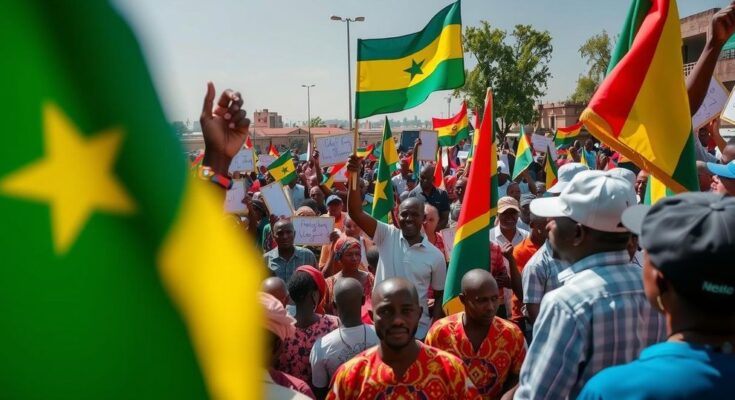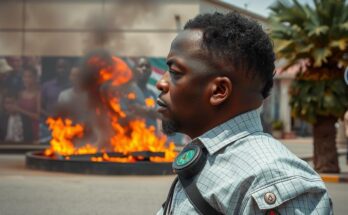Senegal has concluded a tense electoral campaign ahead of crucial legislative elections. Voters will select 165 assembly members, with President Faye lacking a majority to implement reforms. The campaign has been marred by violence, highlighting political tensions exemplified by Ousmane Sonko’s condemnation of attacks on his supporters. The situation underscores concerns for Senegal’s stability as a democracy in a region facing similar challenges.
Senegal concluded a heated campaign period on Friday, as it prepares for a significant legislative election slated for this weekend. This election will determine the composition of the National Assembly, where President Bassirou Diomaye Faye’s party currently lacks a majority to implement his proposed reforms. Faye was elected in March on a platform promising anti-establishment changes, including measures to combat corruption and enhance the distribution of the nation’s resources. In a strategic move, Faye dissolved the opposition-controlled parliament in September to facilitate a snap election. His party is positioned against the Takku Wallu coalition, spearheaded by former President Macky Sall. The campaign atmosphere has been fraught with violence, evidenced by recent clashes and events such as the arson of an opposition party’s headquarters in Dakar, as reported by the Interior Ministry. Ousmane Sonko, a prominent opposition leader and influential figure in Faye’s victory, condemned the violence against his party, PASTEF, urging retaliation for any attacks on his supporters. Despite his calls for vengeance on social media platform X, he later sought to calm tensions by advocating for peace among his followers. The recent unrest echoes broader issues concerning Senegal’s democratic stability, particularly in the context of recent political developments that included both Faye and Sonko’s release from prison just days before the March presidential election, following a political amnesty initiated by the prior administration. This sequence of events has heightened anxieties about the potential emergence of further instability in a region experienced with coups and democratic upheaval.
The legislative elections in Senegal come after a tumultuous presidential election that challenged the nation’s status as a stable democracy in West Africa. Political tensions escalated with the dissolution of the parliament by President Faye, who assumed office earlier this year advocating for reforms against corruption and more equitable resource management. Discontent among parties, including the resurgence of popular figures like Ousmane Sonko, continues to incite clashes and protests, which have marred the political climate leading up to this critical election.
In conclusion, Senegal’s forthcoming legislative election is poised to reflect both the nation’s current political tensions and the public’s response to President Faye’s reform agenda. The violent incidents and the calls for calm by opposition leaders indicate a fraught atmosphere as voters prepare to register their choices. The outcome may significantly influence the governance dynamics in Senegal and the broader implications for democratic stability in West Africa.
Original Source: apnews.com




